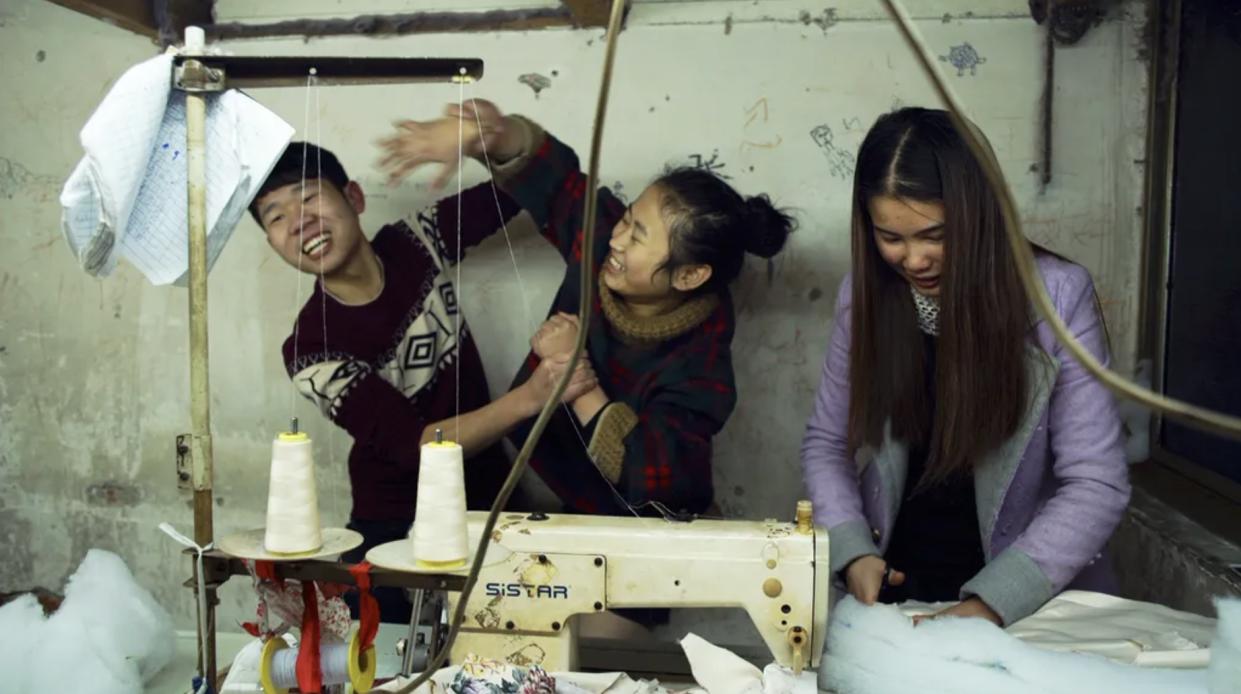‘Youth (Spring) Review: Wang Bing Shows Working-Class China Through Austere Eyes

- Oops!Something went wrong.Please try again later.
Editor’s note: This review was originally published at the 2023 Cannes Film Festival. Icarus Films releases the film at NYC’s Metrograph on Friday, November 10.
The opening panel of an eventual triptych, “Youth (Spring)” feels jam-packed and incomplete. A formally austere direct-cinema tour through Middle Kingdom sweatshops, director Wang Bing’s immersive, 3.5-hour opus heralds a welcome return of the documentary genre to the Palme d’Or race, and a more than promising opening salvo to a final 10-hour film whose ultimate form remains tantalizingly unknown (presumably, “Summer” will follow). As a standalone feature, the dense and repetitive slice-of-life offers notes on a theme, lamenting stifled promise while considering the ways such youthful vigor can withstand, overcome or wholly be crushed by the grinding gears of capitalism with Chinese characteristics.
More from IndieWire
But for an open-ended coda, “Youth (Spring)” opens in a dingy alley in the industrial hub of Zhili City and stays there all the way through, devoting uninterrupted attention to the cramped and cruddy workshops that fill a street all too ironically called Happiness Road. After spending five years quietly observing the area’s various businesses, Wang demarcates each discrete space with supertitles that land like grim punchlines given the complete absence of appreciable difference. That monotony in interior design takes on more sinister implications given the workers’ ostensible “freedom” — nearly all of them economic migrants from the nearby Anhui province, the various youths flock to Happiness Road to work as free agents, “free” to change workshops at will, and are paid for items produced instead of a fixed wage.
Though bleak, this panel is not just a garden of earthly despairs. As in previous films, Wang’s impassive handheld camera waits for life to reveal itself, and for light to shine through the cracks in these concrete tombs. Like a Brueghel or a Bosch, “Youth (Spring)” is less an individual portrait than a bustling portrayal of types — lovesick fools and weary old souls, agitators and wallflowers, peacocks and young parents-to-be, all united and made equal by the same shared and endless labor and the same cramped living quarters. And all of them — but for two outliers — united by age.
Moving between the workshop floors and dormitories (and, in one shot, following two young workers from one to the other, making clear their pinched proximity) and focusing almost exclusively on figures in their late teens and early twenties, “Youth (Spring)” feels like the world’s grimmest college movie. In a certain light, that’s exactly the case. The grungy sweatshops are, for so many of these workers, a first home away from home, the first taste of adult life. (“At school, we were never allowed to smoke,” says one delighted baby-face in between puffs. “Here, no one cares — so long as you can pay!”) Of course, with privacy at a premium, and free time bought with a sacrifice in economic productivity, the rows along Happiness Road are not the most opportune social hives, but then, the co-ed dorms are always full of singles, and life, as always, finds a way.
Constructed as a series of snapshots and vignettes, “Youth (Spring)” introduces pregnancies that cause joy and consternation, with Wang’s sole middle-aged subjects the parents of two workshop employees pushing for an abortion. If we never learn the denouement of that particular melodrama, we find its narrative stakes echoed in subsequent episodes, just as we do with the conversation about wages and collective bargaining. Though never polemical, Wang’s perspective is also not apolitical; the filmmaker just lets the squalor do the talking for him. Unlike the observational style of Frederick Wiseman, Wang has less interest in systems. The sundry youths that cross before his camera are not intersecting components in a larger mechanism, but overlapping ripples in a frigid body of water.
Over an unhurried runtime, the film moves from workshop to workshop that all look the same, from worker to worker that all have their quirks, and from tonal registers that connect to one another in the aggregate. An hour-long sequence might toggle from flirtation to possibility to outrage to romance to weariness, with all these various shades of life scored by the constant whir of sewing machines and the sighs of human exertion.
If that’s all “Youth (Spring)” had to offer, well, dayenu. Only Wang ever so subtly opens his aperture just past the three-hour mark by finally turning his camera on a workshop owner and before following the man home. We first see the owner as his employees do — in fact, we see him browbeating said employees (contractors, technically) into accepting a pay cut. Barely a decade older than those under his wing, the man points toward a way up in life, if not exactly a way off Happiness Road. With a family and economic strain of his own, Tian Weng also suggests a wider narrative scope and greater thematic ambitions, a point only furthered by a closing sequence that fully leaves Zhili City behind.
Wang’s message is clear, and his promise of new seasons to explore and new panels to uncover ends with the kind of cliffhanger you don’t often see in austere arthouse documentaries. But it also leaves you with the stark realization that at, three-and-a-half hours, “Youth (Spring)” is only one-third of the picture.
Grade: B+
“Youth (Spring)” premiered in competition at the 2023 Cannes Film Festival.
Best of IndieWire
Sign up for Indiewire's Newsletter. For the latest news, follow us on Facebook, Twitter, and Instagram.

